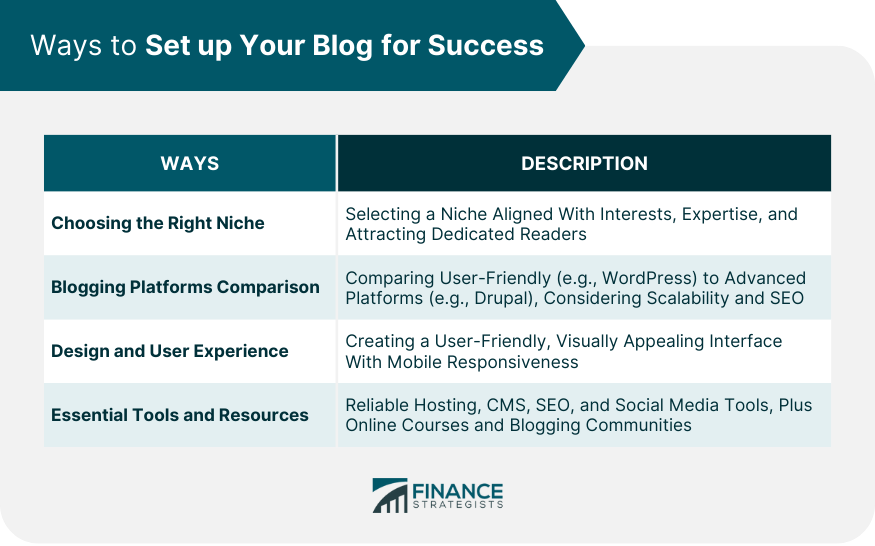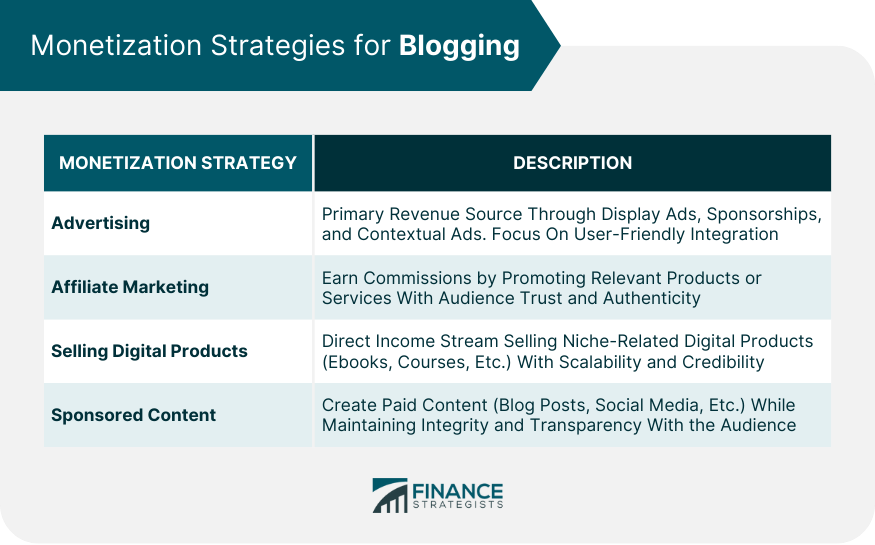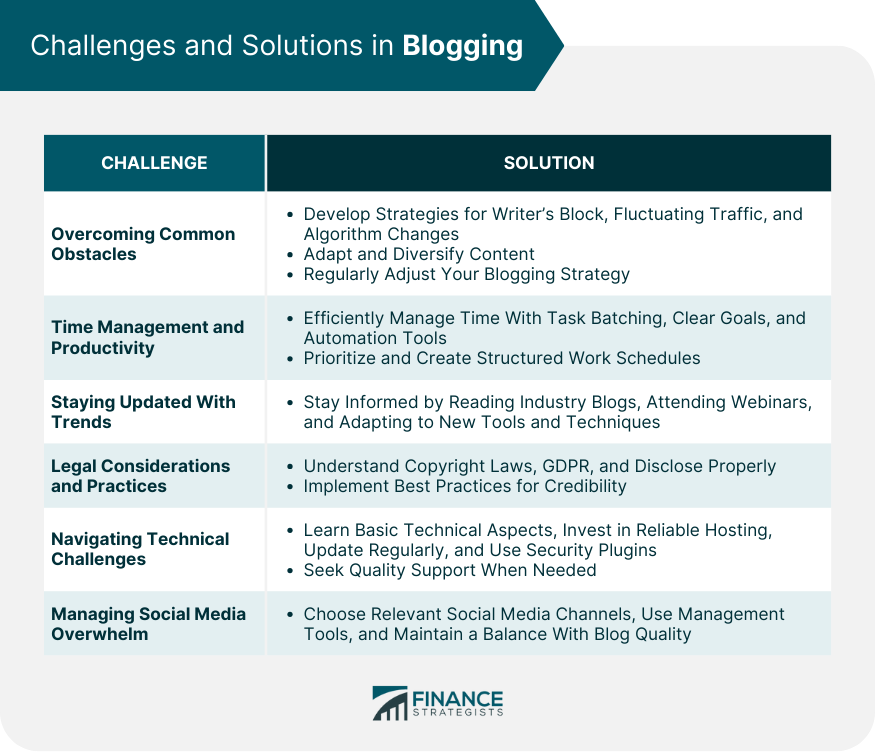Blogging, once a personal hobby, has evolved into a powerful and accessible avenue for generating passive income. It provides individuals with a platform to share their expertise, stories, or opinions with a global audience. The beauty of blogging lies in its low entry barrier and the potential for substantial financial returns over time. As bloggers create valuable content and grow their audience, they can monetize their blogs through various means such as advertising, affiliate marketing, and selling digital products. The success of a blog significantly depends on selecting an appropriate niche. This niche should align with your interests and expertise while also catering to a specific audience. A well-chosen niche not only keeps the blogger motivated but also attracts a dedicated readership. Choosing the right blogging platform is crucial. Options range from user-friendly platforms like WordPress and Blogger to more advanced systems requiring technical know-how. For beginners, platforms like WordPress offer ease of use and a wide range of themes and plugins. For those with more technical expertise, platforms like Drupal or Joomla might offer greater customization but require a steeper learning curve. It's important to consider factors such as scalability, SEO-friendliness, and support when choosing a platform. A blog’s design and user experience (UX) play a pivotal role in retaining visitors and encouraging them to explore your content. A clean, intuitive design, combined with easy navigation, enhances the user experience. This involves thoughtful layout planning, choosing the right color scheme, and ensuring mobile responsiveness. The goal is to create a visually appealing and user-friendly interface that aligns with your content and brand personality. Having the right tools and resources is essential for efficient and effective blogging. This includes choosing reliable hosting services, investing in a good content management system (CMS), and utilizing tools for SEO, social media management, and analytics. Additionally, resources like online courses, blogging communities, and content creation tools can provide valuable support and insights for growing your blog. Advertising is a primary revenue source for many blogs. Display ads, contextual ads, and direct sponsorships are common types. Effective ad placement and choosing the right advertising network can significantly impact earnings. The key is to integrate ads seamlessly into your blog without compromising user experience. It's important to choose ad types and placements that resonate with your audience and align with your blog's niche and aesthetic. Careful consideration of ad frequency and positioning can maximize revenue without alienating readers. Affiliate marketing involves promoting products or services and earning a commission for every sale or lead generated. This monetization strategy works best when the blogger has a strong connection with their audience and promotes products that are relevant and valuable to them. It requires a strategic approach, often involving honest reviews, tutorials, and direct product recommendations. The success of affiliate marketing hinges on the trust and rapport a blogger has with their audience, emphasizing the need for transparency and authenticity in promotions. An increasingly popular monetization strategy is the sale of digital products or services. This can include ebooks, courses, webinars, or consulting services related to your blog's niche. This approach not only provides a direct income stream but also enhances your credibility and authority in your field. Digital products offer scalability and the potential for significant profit margins, as they are relatively low-cost to produce and can be sold repeatedly without additional expenses. Sponsored content and partnerships with brands can provide another lucrative revenue stream. This involves creating content that is paid for by a sponsor, which could include blog posts, social media posts, or videos. The key to successful sponsored content is maintaining editorial integrity and ensuring that the sponsored content aligns with your blog’s theme and your audience's interests. Transparency with your audience about sponsored content is also crucial to maintain trust. Social Media Marketing for Bloggers: Social media platforms are powerful tools for increasing blog visibility and attracting new readers. Email Marketing and List Building: Building an email list allows bloggers to communicate directly with their readers, fostering a deeper relationship. Every blogger faces challenges, be it writer's block, fluctuating traffic, or changing algorithms. Developing strategies to overcome these obstacles, such as diversifying content or staying adaptable to changes, is crucial for long-term success. It's important to remain flexible and open to trying new approaches, whether it's experimenting with different content formats or adjusting your SEO strategies to keep up with search engine updates. Regularly evaluating and adjusting your blogging strategy can help navigate these challenges effectively. Managing a blog requires significant time and effort. Effective time management and productivity techniques are essential to maintain a consistent output without burning out. Tools and strategies like batching tasks or using content management systems can help. Setting clear goals, prioritizing tasks, and creating a structured work schedule can greatly enhance productivity. Additionally, using automation tools for social media posting or email marketing can save time and streamline operations. The digital landscape is constantly evolving, and staying informed about the latest blogging trends is critical for success. This involves keeping abreast of new social media platforms, changes in search engine algorithms, and emerging content formats. Regularly reading industry blogs, attending webinars, and participating in online forums can help you stay on top of these trends. Adapting your blogging strategy to incorporate new tools and techniques can keep your content fresh and engaging for your audience. Understanding the legal aspects of blogging is crucial for operating a credible and legitimate blog. This includes being aware of copyright laws, especially when using images or citing sources, and adhering to regulations like GDPR for data protection. Transparency in disclosures, especially for sponsored content and affiliate links, is also a legal requirement in many regions. Staying informed about these legalities and implementing best practices in your blogging strategy can prevent potential legal issues and maintain your blog’s integrity. Technical issues, such as website downtime, security breaches, or plugin conflicts, can disrupt the smooth functioning of your blog. Having a basic understanding of the technical aspects of running a blog, such as hosting management, website security, and data backups, is important. It's advisable to invest in reliable hosting services, regularly update your website, and use security plugins. In case of technical difficulties, having access to quality customer support or a professional tech service can be invaluable. In an era where social media presence is crucial for blog promotion, managing multiple platforms can be overwhelming. It's essential to choose the right social media channels that align with your blog’s niche and audience. Using social media management tools can help schedule posts and track engagement efficiently. Balancing your online presence without compromising the quality of your blog content is key. Remember, it's better to be effectively present on a few platforms than to be stretched too thin across many. Blogging has transformed from a hobby into a robust avenue for passive income, offering vast opportunities for sharing knowledge, stories, and opinions worldwide. The success of a blog hinges on the synergy of several factors: selecting the right niche, leveraging the most suitable blogging platform, and creating an engaging user experience. Effective monetization strategies, such as advertising, affiliate marketing, selling digital products, and sponsored content, are essential for turning a blog into a profitable venture. Equally important are strategies for traffic generation, audience building, and overcoming the inevitable challenges that come with maintaining a dynamic online presence. By staying updated with trends, managing technicalities, and balancing the demands of social media, bloggers can craft a rewarding, sustainable source of passive income. This journey of blogging, while demanding, offers a fulfilling path to financial freedom and personal growth.Blogging as a Passive Income Stream Overview
Setting up Your Blog for Success
Choosing the Right Niche
Blogging Platforms: Options and Comparison
Design and User Experience Considerations
Essential Tools and Resources for Bloggers

Monetization Strategies for Blogging
Advertising: Types and Strategies
Affiliate Marketing Basics
Selling Digital Products or Services
Sponsored Content and Partnerships

Traffic Generation and Audience Building
They provide a direct channel to engage with your audience, share content, and drive traffic back to your blog.
Regular newsletters, exclusive content, and personal updates can turn casual readers into loyal followers.Challenges and Solutions in Blogging
Overcoming Common Obstacles
Time Management and Productivity Tips
Staying Updated With Blogging Trends
Legal Considerations and Best Practices
Navigating Technical Challenges
Dealing With Social Media Overwhelm

Bottom Line
Passive Income Through Blogging FAQs
The time it takes to begin earning passive income from a blog can vary widely. Factors such as the chosen niche, content quality, monetization strategies, and audience engagement play a significant role. Generally, it might take several months to a year to start seeing substantial income as building a loyal readership and optimizing monetization strategies is a gradual process.
Some of the most profitable blogging niches include personal finance, health and wellness, technology, travel, and lifestyle. However, profitability is also highly dependent on how effectively you connect with your audience and the unique value you provide within your niche.
Technical expertise, while beneficial, is not a necessity for successful blogging. Many modern blogging platforms cater to beginners and there are ample resources and tools available to assist with the technical aspects of blogging.
SEO is extremely important in blogging as it enhances the visibility of your blog in search engine results, which is essential for driving organic traffic to your site. Effective SEO practices can significantly increase your blog's reach and readership.
Absolutely, blogging can evolve into a full-time career. Numerous bloggers have successfully transitioned their blogging passion into a full-time profession, earning significant income. Success in full-time blogging requires commitment, strategic planning, and the ability to adapt to evolving digital trends and audiences.
True Tamplin is a published author, public speaker, CEO of UpDigital, and founder of Finance Strategists.
True is a Certified Educator in Personal Finance (CEPF®), author of The Handy Financial Ratios Guide, a member of the Society for Advancing Business Editing and Writing, contributes to his financial education site, Finance Strategists, and has spoken to various financial communities such as the CFA Institute, as well as university students like his Alma mater, Biola University, where he received a bachelor of science in business and data analytics.
To learn more about True, visit his personal website or view his author profiles on Amazon, Nasdaq and Forbes.















